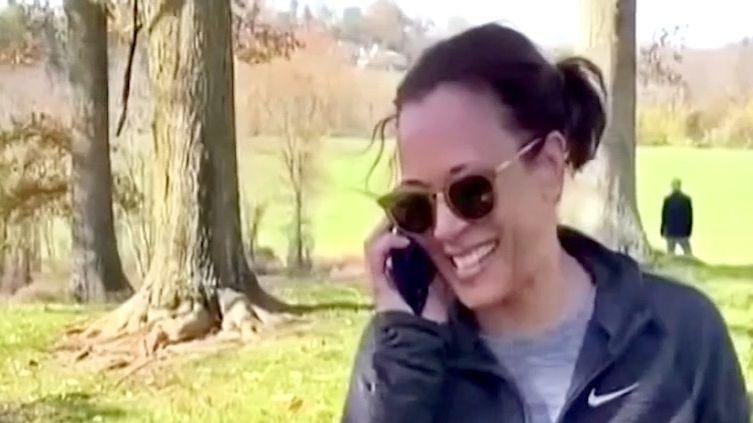The internet is enthralled with Harris. Will that get her more votes?
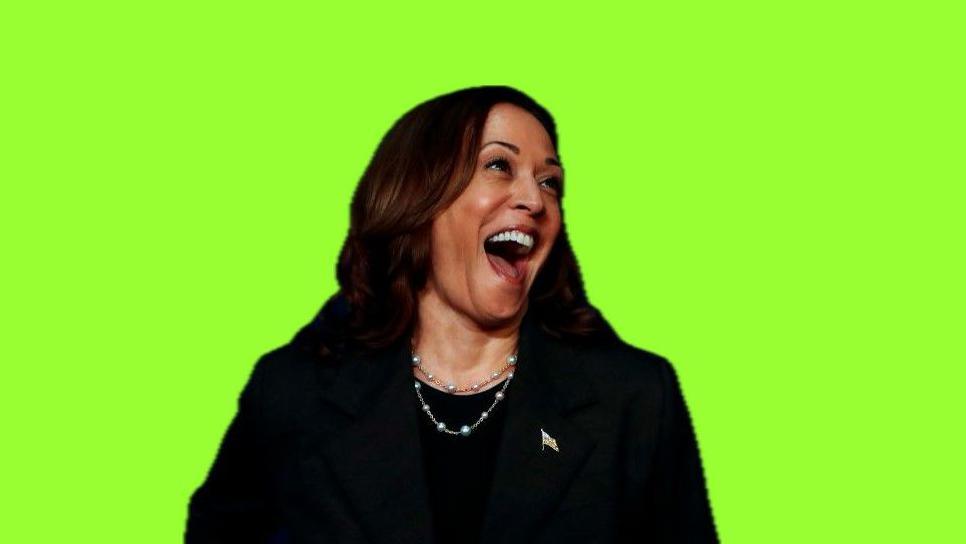
- Published
In the days since Kamala Harris announced her candidacy for US president, young people across the US have had a lot to explain.
The increasing popularity of coconut trees. A British pop superstar becoming a sudden American political force. The resurgence of chartreuse green.
Social media was abuzz last Sunday after President Joe Biden ended his re-election campaign and instead endorsed Vice-President Harris. And in the hours that followed, the Harris campaign leaned in to the excitement.
The Biden-Harris campaign Twitter account changed its username to KamalaHQ, using British pop superstar Charli XCX's apparent endorsement of her as its new (similarly green) banner.
The campaign's biography on X reads, "providing context", a reference to much-lampooned remarks made by Ms Harris in May 2023.
While the president's abrupt exit and Ms Harris' subsequent rise have injected uncertainty into the election, social media users, particularly young people, have been enthralled. But it's unclear if the newfound enthusiasm will help engage younger voters, a key group for Democrats in November, and whether the political momentum will continue.
So far, the online flurry has proved fruitful: The campaign has raised more than $100 million in the roughly two days since Mr Biden decided to step aside, it hosted a fundraising call attracting more than 44,000 black women and recruited about 58,000 new volunteers.
Coconuts, brat and the online moments
Republicans have long used video clips of Ms Harris' verbal slip-ups or awkward interviews against her. But in recent weeks, supporters have used those same clips to paint her as endearing, relatable and candid.
One video features Ms Harris at a White House event sharing an anecdote about her mother.
"She would say to us, 'I don't know what's wrong with you young people. You think you just fell out of a coconut tree?" Harris said as she laughed. "You exist in the context of all in which you live and what came before you."
But the video - panned by detractors - has been embraced by Harris supporters who now use coconut and palm tree emojis to signal their allegiance on social media.
"When your opponent says something, you just take it and you make it your thing, and then you've taken the power away from them," said Katherine Haenschen, a Northeastern University professor who researches the effect of digital communications on voter turnout.
"Memes matter. Memes are actually a complex way of conveying information to people," she said.
Charli XCX's apparent endorsement of Ms Harris also fuelled the online frenzy. In the hours after Mr Biden threw his support behind Ms Harris, the singer said "kamala IS brat" in a tweet on X, external, a reference to the singer's popular new album.
Ms Haenschen said the term refers to women of contradictions who "can kind of choose their own path and they can kind of set their own agenda".
The tweet, in turn, was viewed 50 million times by Tuesday afternoon.
David Hogg, a 24-year-old Democratic activist who founded the March for Our Lives Movement after the 2018 mass shooting at his high school in Parkland, Florida, shared the post.
On Wednesday, for the first time in the group's history, they endorsed a candidate: Ms Harris.
"The amount this single tweet may have just done for the youth vote is not insignificant," Mr Hogg wrote., external
It will reach more young people than a million dollar cable advertisement, said Annie Wu Henry, a digital political strategist who has worked on Democratic campaigns.
Of the more than 300 videos the Biden-Harris campaign has put out on TikTok, the three videos released since Mr Biden stepped aside have amassed 20% of the likes on the entire page, according to Ms Henry.
Grassroots enthusiasm
Some experts say the Harris campaign's social strategy is not unlike former President Barack Obama's in 2008.
"It's been a while that we've had someone to top the ticket who's got the pulse of younger voters and is very involved and conversant in popular culture," said Philip de Vellis, a political advertising consultant who worked on the Obama campaign.
But, Mr de Vellis cautioned, that does not mean it will translate into votes.
While some point out that online political enthusiasm traditionally has been crafted by a campaign then filtered down to voters and social media users, this push for Ms Harris feels more grassroots, Ms Haenschen said.
Mr Obama's success was result of a grassroots effort, but in a different context. TikTok did not exist and Facebook was just becoming popular outside of college campuses, she said.
Americans want to be part of a Zeitgeist and the Harris campaign, in its current very online iteration, allows them a chance to do that, she said.
The campaign should allow the Harris meme moment to run its course or risk losing steam, Dr Haenschen said.
Will this make a difference in November?
The virality of Ms Harris in this moment allows her to embrace her many identities, according to Rachel Grant, a professor of cultural scholar studies, media activism and social movements at the University of Florida.
Younger voters can find clips of her speaking about something that resonates, like her experience attending Howard University or abortion rights.
For now, the millions Ms Harris raised in a few days has energised voters in a tight election now four months away. Still, the Democrats will have to strike a balance of leaning into the virality and key issues to ensure voter turnout.
"Her campaign shouldn't be focused on coconuts and context and unburdened and all of that," Ms Henry, the digital political strategist said. "It should be focused on what she can do for the American people."
Related topics
- Published23 July 2024
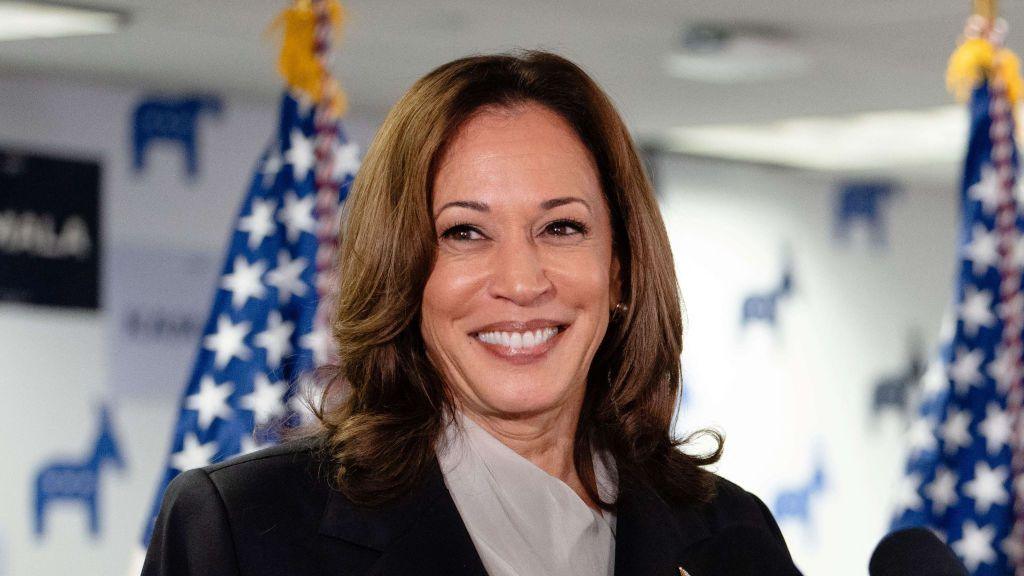
- Published23 July 2024
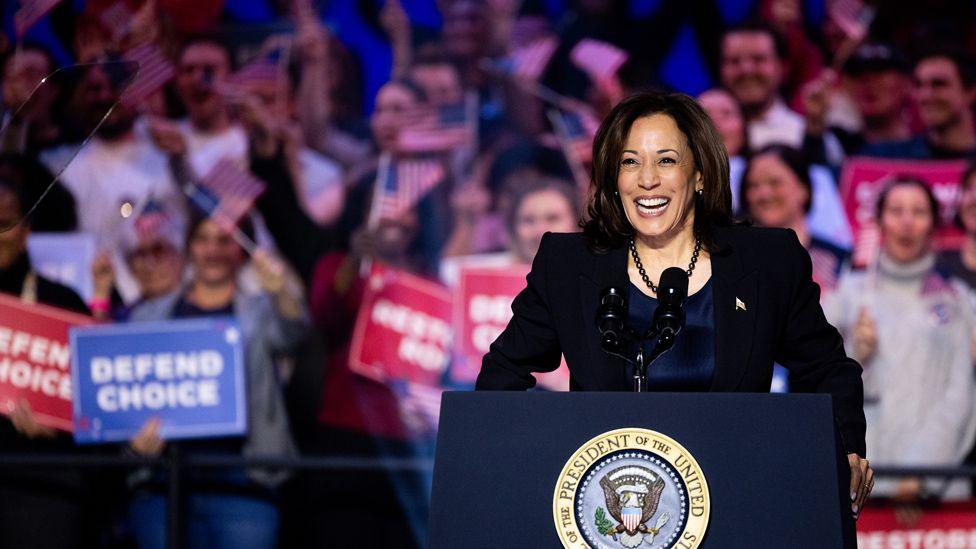
- Published23 July 2024
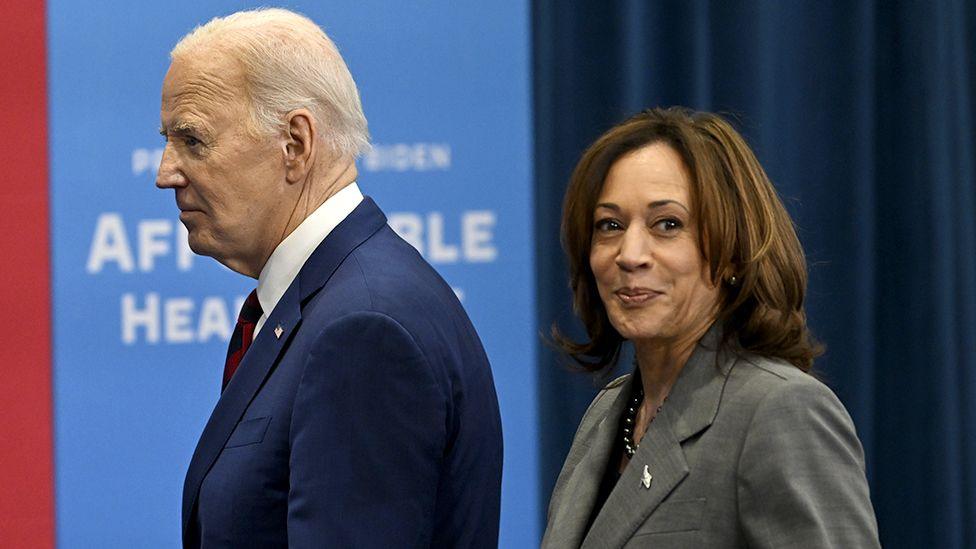
- Published23 July 2024
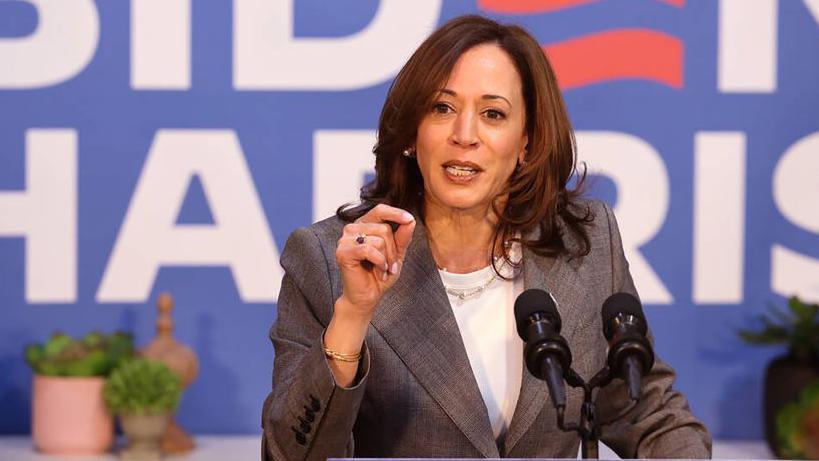
- Published22 July 2024
